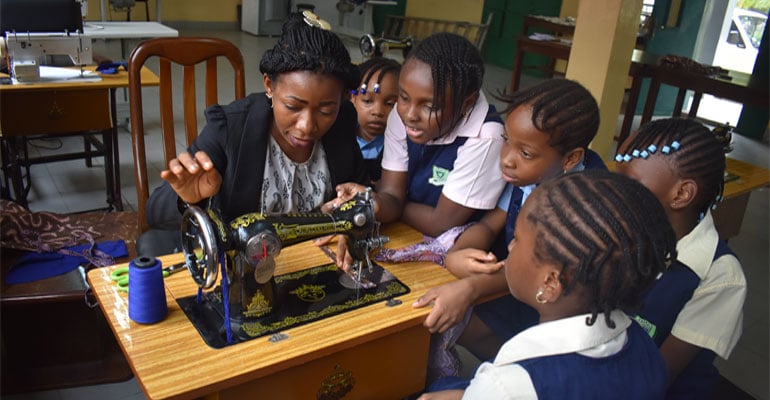Adapting to life with diabetes: How education is changing lives
A free program in South Texas is helping Texans manage diabetes through education, support and community resources
Type 2 diabetes is often preventable, yet it impacts millions of people each year. Research suggests approximately one in three adults has prediabetes, with 90 percent unaware they have the condition.
The Texas A&M Healthy South Texas Diabetes Education Program is working to change that. Offering free education, support and management resources, the program helps Texans with diabetes and prediabetes—as well as their loved ones—navigate the challenges of the disease and gain back control over their well-being. A team of registered nurses, dietitians, exercise physiologists, community health workers, certified diabetes care and education specialists, and a medical director provide a full spectrum of care.
For Jesse Quiroz, a retired military veteran who was diagnosed with type 2 diabetes last year, the program was life changing.
“When I was diagnosed, I was devastated,” Quiroz said. “I said to myself, ‘This can’t be me.’ It was awful. They wouldn’t let me out of the hospital because they were running some tests, because I was at the point where my organs were in danger of shutting down.”
Beyond the physical toll, the diagnosis felt like part of his identity had been stripped away, especially as a military veteran who had always prided himself on being physically fit.
“It felt like someone was telling me I had done this to myself,” he said.
His Healthy South Texas diabetes education team helped him understand what diabetes is, how it happens and the steps he could take to manage it. Prior to the education, he didn’t know anything about diabetes, but learning more about it helped ease his fears, Quiroz said.
Alongside longer-term care, the program provides diabetes self-management and support classes, including a one-day session available in both English and Spanish. Participants learn:
Juanita Garcia, RN, CDCES, program manager for the Diabetes Education Program, called this education invaluable.
“Community members often lack access to reliable health information about diabetes and overall health. That is why providing diabetes self-management and education is so important. Most people don’t know that you can manage diabetes effectively and live a long healthy life,” Garcia said.
For Quiroz, one of the most impactful aspects of the Diabetes Education Program was the community. The instructors were incredibly knowledgeable, and it felt comforting, he reflected, to be among classmates sharing similar experiences.
“They had questions that I was going to ask anyway,” he said. “And they even asked questions that I never thought about!”
In addition to structured classes, the program often participates in health fairs and other community events to provide free health screenings. These events are important, Garcia explained, because many people who lack access to health care don’t realize they have diabetes until they receive a health screening at an event like these.
That’s how Michael Montantez discovered his A1C level was dangerously high. While attending a local 5k race for his son, he stopped at a Healthy South Texas booth offering free A1C and blood sugar evaluations. His A1C registered at 9.7 percent, well above the diabetic range of 6.5 percent or above.
The unexpected diagnosis was a wake-up call for Montantez. He quickly enrolled in a diabetes education session, where he learned how diet and exercise play an important role in managing blood sugar.
Since then, Montantez said he’s been more mindful of his food choices and has increased his physical activity. He makes time to get out for a walk every single day, even if it’s only for a quick 15 or 20 minutes during his lunch break.
“My son is disabled—with spina bifida—and I want to be there and able to help him out,” Montantez said.
Receiving his diagnosis has motivated Montantez to do everything he can to be in his kids’ lives for as long as possible. And his efforts have paid off. Since starting the program in the summer of 2024, his A1C has dropped by 3.5 points to 6.2 percent, just below the diabetes threshold.
For Starr Flores, regional director of Healthy South Texas and director of the Texas A&M Coastal Bend Health Education Center, the most rewarding part of her team’s work is serving the community and contributing to life-changing outcomes like Montantez’s.
Healthy South Texas serves 27 counties with locations in Corpus Christi, Victoria, Lake Jackson and Kingsville, with some virtual opportunities available for those living outside of service areas. The organization collaborates with local clinics, community health centers, health departments and even food banks to reach those in need.
“We strategically place our programs in locations people are already going—like clinics and community centers—so they can access care and education without making multiple trips,” Flores said. “We want to meet people where they are.”
A key focus of the program is to overcome any physical, mental, financial or social barriers to care. Many participants express hesitation about seeking care due to financial strain, lack of transportation or social stigma from friends or family.
One major area of support is medication assistance. About 75 percent of the prescriptions with which the program assists are for diabetes medications like Metformin and GLP-1 receptor agonists. But the program assists with medications for almost any health condition, ranging from asthma to kidney disease.
Since 2001, the Diabetes Education Program has been empowering people with knowledge and building a healthier South Texas.
“You know, they say the education is power,” Quiroz said. “Well, that education gave me back my life.”
More information is available online at the Diabetes Education Program website or by phone at 866.524.1408 or 956.668.6300.











